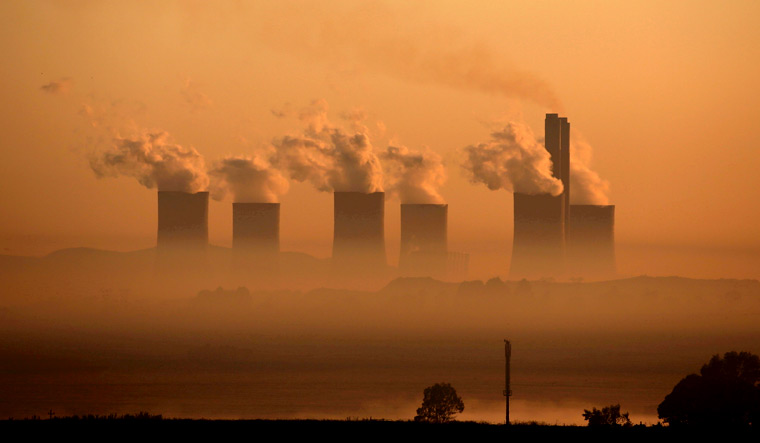To be held from November 6-11, at Egypt's Sharm el-Sheikh
Web Desk Updated: November 05, 2022

The 27th edition of the United Nations Climate Change Conference—Conference of the Parties (COP) 27—is set to be held from November 6-11, at Egypt’s Sharm el-Sheikh. The summit will see world leaders gather together to discuss and agree upon measures to mitigate the climate change crisis.
This year's summit comes at a crucial time when the effects of climate change and global warming are beginning to show in many parts of the world—in the form of rising temperatures, flash floods, typhoons and more. This is the fifth time that the COP comes to Egypt. More than 120 leaders, including US President Joe Biden and UK Prime Minister Rishi Sunak, are expected to attend. Criticising the global summit as a forum for “greenwashing”,
Swedish climate activist Greta Thunberg said she will skip talks in Egypt.
What is the agenda of COP 27?
At the COP27, countries are expected to agree upon measures to limit the global warming to 1.5 degrees Celsius—a pact that was signed at Glasgow last year. The larger objective is to halve global greenhouse emissions by 2030 and reach “net zero” by 2050. The Intergovernmental Panel on Climate Change (IPCC) estimates that if temperatures rise 1.7 to 1.8 degrees Celsius above 1850s levels, half the world's population could be exposed to life-threatening heat and humidity.
Global temperatures have already risen 1.1 degrees Celsius and are heading towards 1.5 degrees Celsius, BBC stated in a report quoting climate scientists. At the COP 26 in Glasgow, the countries agreed to submit updated national targets, or Nationally Determined Contributions (NDC) this year and deliver stronger commitments. However, only 24 countries have submitted the plans so far, the UN stated.
What are India's demands?
India will focus on climate finance and technology transfer at the COP 27. Speaking on India's stand this year, Union Environment Minister Bhupender Yadav India will push developed countries for "action" to help developing nations adapt to climate change.
Yadav said India will also emphasise that it is one of the few countries which has met the 2015 climate goals set in Paris. "COP27 should be COP for action in terms of climate finance, technology transfer and capacity building. This is our overall approach. India will seek clarity as to what is being termed as climate finance whether it is grants, loans or subsidies,” he said earlier this week.
Putting it simply, climate finance refers to the financing that is needed to support action plans to reduce greenhouse emissions and fight climate change.
At Copenhagen in 2009, developed countries had committed to jointly mobilise $100 billion per year by 2020 to help developing countries tackle the effects of climate change. However, they failed to execute this. This year, India and other developing countries, will ramp up the pressure on “rich countries” to deliver. India has maintained the stand that developed countries have historically been responsible for high greenhouse gas emissions, and hence need to be held more accountable.
India will seek clarity on the definition of climate finance and how the funds will flow. India will focus on the need to specify the quantity and quality of long-term finance (in trillions), its scope, ease of access to finance and mechanisms for tracking such finance in a transparent manner, according to a report released by the Ministry of Environment, Forest and Climate Change.
At this year's conference, developed countries are expected to push developing nations to further intensify their climate plans. Developing countries would seek commitment on finance and technology needed to address climate change and resulting disasters.
According to the updated NDCs, India now stands committed to reducing emissions intensity of its GDP by 45 per cent by 2030, from 2005 level, and achieving about 50 per cent cumulative electric power installed capacity from non-fossil fuel-based energy resources by 2030. These NDCs are, however, contingent on delivery of finance and technology transfer.
-with PTI inputs
No comments:
Post a Comment